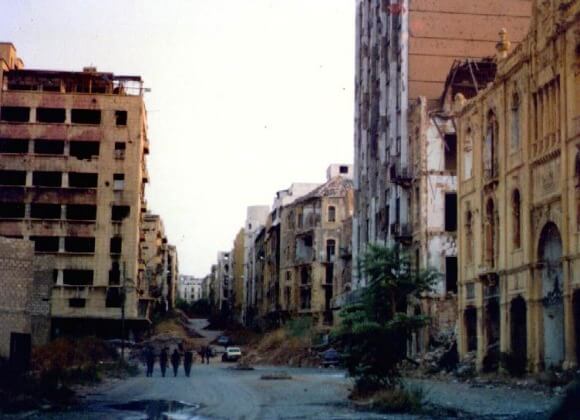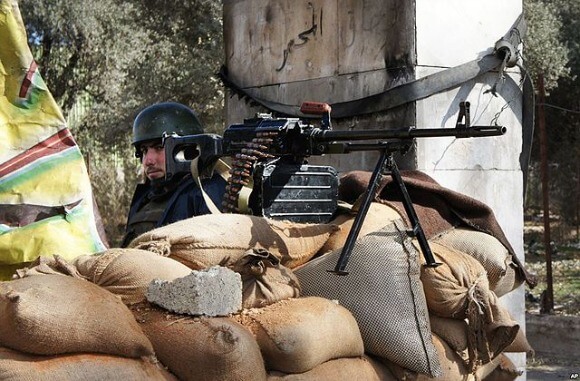What is the inexplicable appeal of dangerous places, of conflicts and war zones, that so attracts some travelers?
If you’re a journalist or an aid worker or a soldier, you may be off to Afghanistan or Yemen because of your job, but many independent-minded travelers – women included – head off to countries in turmoil for reasons that most people would question.

Why would you do that?
- You might be curious about a place, knowing peace will eventually come and McDonald’s and Starbucks along with it. This is your chance to get in before every shred of authenticity is wiped away. Cuba (which isn’t dangerous and was only considered so by the US State Department until the recent detente) is poised for huge changes. Algeria is trying to attract visitors, although the occasional foreigner still gets kidnapped and the country isn’t yet ready for prime time.
- Maybe you like living on the edge, and the adrenaline surge that comes with surviving certain danger. I understand this feeling because I volunteered to go to Beirut at the height of the war on an assignment no one else would take on. I was my organization’s last resort. I was young, I was invincible. Of course I was shot at, my fault entirely for standing up on a rooftop along the Green Line during sniper fire. I still remember the crunch of concrete as I dove down, my teeth hitting the dirt, my clothes tearing as I desperately rolled away from snapping bullets (they sound a lot dryer and tinny in person than on television…)
- You may have a case of Ego. The “It won’t happen to me!” syndrome, which I alluded to above. And I certainly hope it doesn’t happen to you. When I was working as a foreign correspondent and asked my editor to send me to Afghanistan, he told me he’d rather keep me alive. What was it that made me think – in the late 1990s when violence was intense – that I would be the one to survive when so many far more experienced journalists had not. I took myself into Aceh instead, relatively off-limits then, a small act of rebellion on my part.
- You may be unconscious. Or naive. Or simply stupid.
Remember that if you’re traveling independently, you won’t have backup from an aid agency or media conglomerate. You’ll be utterly on your own and while it may seem romantic or daring or courageous to some, it’s anything but. You may not even be able to buy insurance. I can’t recommend it.
I consider heading into war terrifying and soul-destroying. As a younger reporter I felt this was my job and again, I somehow thought I would stay safe. That I did was pure good fortune and not my doing.

Some years later in Mozambique, after that country’s civil war ended, I was writing about the once-lush Gorongosa National Park and its slow recovery from years of open warfare. During that visit I somehow became lost in a minefield.
For many excruciating minutes, we drove in circles, expecting to be blown up at any moment. I remember praying – I don’t do that often – and I recall the visceral certitude that I would never see my family again. It’s a knowledge that went beyond my head and heart right into my cells. I understood what it meant to have your insides liquefy.
We of course did find our way out but I still recall that sour taste of fear more than two decades later.
SO, ABOUT THAT WAR ZONE
There is no lack of dangerous places and the unfortunate list seems to be growing. As I write, it would be logical to stay away from Syria, Iraq, South Sudan, an expanding slice of the Sahel region in the Sahara, Central African Republic, Somalia, Yemen, Afghanistan – and a few more that I haven’t listed or that are dangerous only in part.
As a woman I would additionally think twice about regions with excessive sexual violence, where the culture is misogynistic or dismissive of women, or where authorities are corrupt and can’t be counted upon to protect you. Add this to war and you’re walking a true tightrope.
As soon as a new conflict hits the news, people descend on it: the peacekeepers and humanitarian aid workers and journalists of course, but also the curious and the intrepid and the careless, travelers for whom war is just another form of extreme tourism and who would wear the kind of T-shirt that said “I’ve done Somalia and survived.” Great. You got lucky. Might not last.
I also believe it’s a question of age. In your 20s and 30s, life can appear infinite, stretching ahead like a long, endless path. At least that’s what it looked like to me. I’m more careful now. Once, I just went. Today I weigh decisions more.

IF YOU CAN’T STAY AWAY FROM CONFLICT ZONES, AT LEAST DO WHAT YOU CAN TO PROTECT YOURSELF
Travel to conflict zones is not a great idea, at least not in my book.
But if you can’t or won’t stay away, the least you can do is take every available precaution.
- Prepare yourself. You’d be amazed at how travelers can neglect even the most basic precautions when heading out to places that scream danger. No reading beforehand, no research, no local contacts – just get the ticket and go.
- Make sure you’ve told someone reliable where you’re headed and when you’re due to arrive. Inside the country let someone know your itinerary by the day, or even by the hour if you’re moving around.
- Don’t neglect the paperwork. Carry copies of all your important documents. Register immediately with your embassy or consulate when you get to the country (look online for Embassy of [your country] in [where you’re going]). Carry their phone number with you.
- Be discreet. You’ll notice that many airports and military installations forbid you to take pictures. Please obey. You whip out your camera at your own risk. You may think no one is watching, but then all of a sudden you’re surrounded by men in uniforms.

- Watch where you walk. At the risk of stating the obvious, stay away from minefields and areas that have seen recent fighting. Minefields are often marked – but not always, as I learned the hard way in Mozambique. Decades after the US dropped bombs on Laos during the Vietnam War, millions remain unexploded (live!) and continue to maim children who pick them up, thinking the little yellow balls are toys.
- Be vigilant. Look for markings (skull and crossbones are a good indication). Be sensitive to anomalies – if you see a fallow field in the middle of farmland, wonder why. Ask locals: they are the first to know which areas are safe and which aren’t. Don’t wander off into the bush to relieve yourself unless you absolutely know it’s been demined. If the locals are squatting on the road or right next to the vehicle, there’s probably a reason.

- Keep a fake wallet at hand – with enough money to satisfy criminals. About $50 should do the trick. Keep a credit card and some expired identification you don’t care if you lose. If you’re mugged or stopped at a roadblock, this is the wallet you pull out. Do it slowly – you don’t want anyone thinking you’re pulling out a weapon.
- Stay out of religious buildings unless you belong to that faith and are going inside to pray or pay homage. Obviously this advice isn’t for everyday travel but in areas that are fragile or in conflict, especially conflicts around faith, entering a religious building may take on a different meaning.
- Read up about safety issues. I’ve listed a few resources in the next section so explore them carefully before you go.
Your life may well be your life, but spare a thought for the people back home who care about what happens to you; for travel partners who may know less than you and whose lives you might be endangering; and for local people who may have to risk their own lives to save yours if you take stupid risks.
WHAT IF YOU DO DECIDE TO VISIT A DANGEROUS COUNTRY?
Your most important concern is getting the best and latest information. My go-to source for up-to-the-minute information on the world’s hotspots is the United Nations’ ReliefWeb, which keeps humanitarian relief workers in the loop about the immediate situation in these countries. This is the resource the experts use.
You can find plenty of political information and travel advisories provided by the governments of Australia, Canada, the UK and the US. That said, their job is to keep you out of trouble so sometimes an entire country will be declared off-limits because a single bomb exploded somewhere. I use these advisories mostly for background and to assess common wisdom about a place. They don’t necessarily dictate my travel choices.
Just because a country promotes tourism doesn’t make it safe for travel. Tourism is an important source of income for cash-strapped nations at war. It’s also great for public relations, as in “I was just there and it’s not so bad!” It’s their job to get you there – not to protect you once you arrive.
For heaven’s sake, countries like Algeria and Eritrea and Yemen all had tourism promotion booths at ITB Berlin (the world’s leading travel trade show) in 2015. Even Iraq was present!
If I’ve thoroughly cooled your ardor about dangerous destinations but you’re dying of curiosity, here’s an option. You can always sit back and read sites like Come Back Alive by Robert Young Pelton, who has made it his life’s work to travel into danger and tell others all about it. It may not be quite as exciting as being there yourself, but it’s still a lot safer than wandering into a storm of flying bullets.
— Originally published on 31 July 2011
